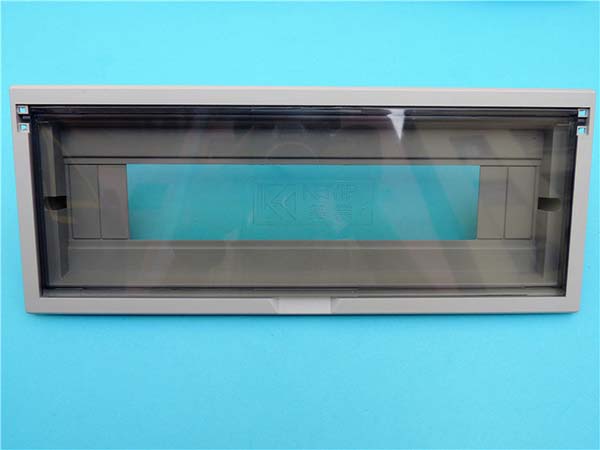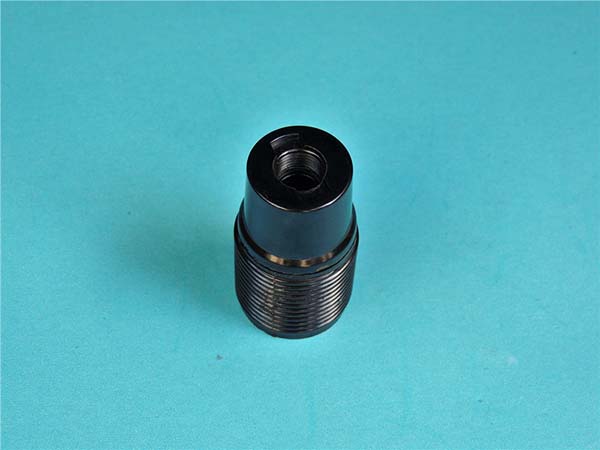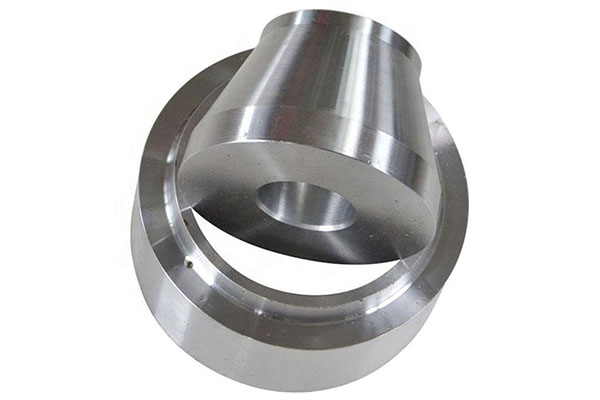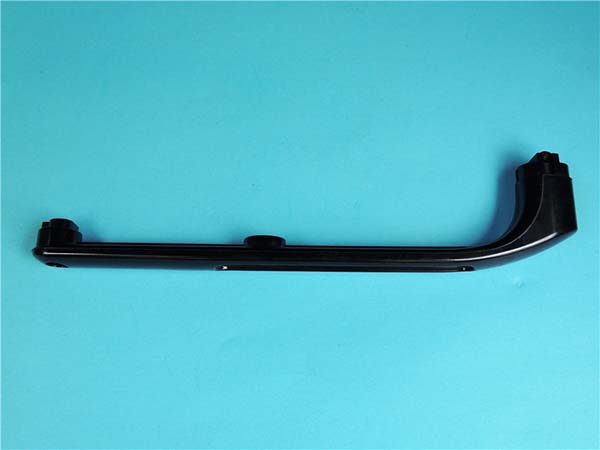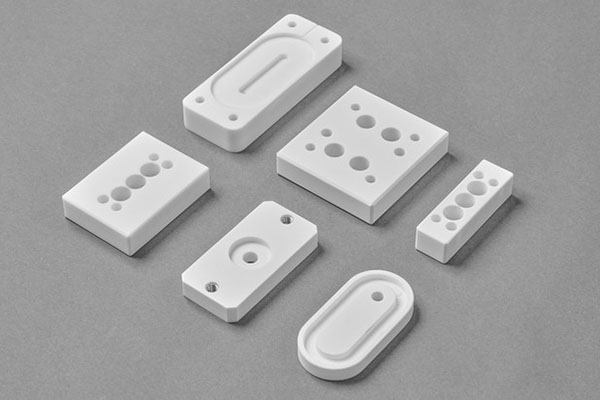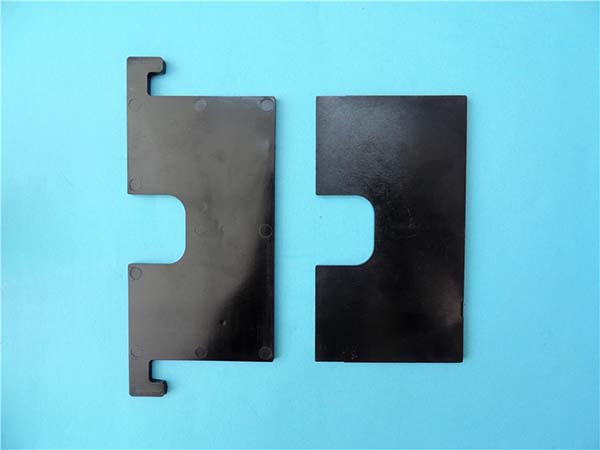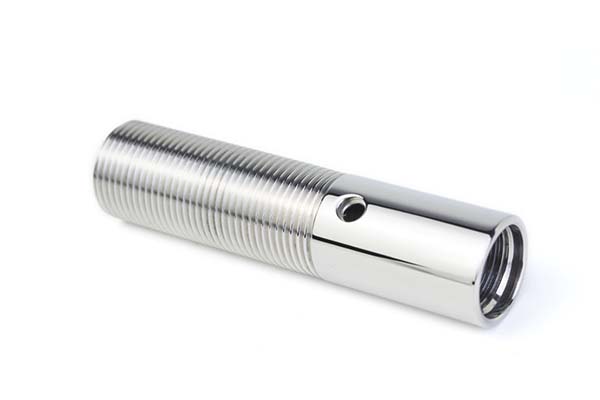Understanding the Importance of a Prototype Supplier
In the dynamic realm of product development, a prototype supplier plays a pivotal role. Think of them as the unsung heroes behind every innovative product that hits the market. But what exactly makes them so crucial?
Validating Product Concepts
First and foremost, they help businesses validate product concepts. When you have a brilliant idea for a new gadget or a revolutionary software, it's just that - an idea, at least initially. A prototype supplier can transform this abstract concept into a tangible, working model. For instance, let's say you're planning to launch a new fitness tracker. A prototype allows you to test features like heart rate monitoring accuracy, battery life, and the user - friendliness of the interface. According to a study by the Product Development and Management Association, around 40% of new product failures are due to a lack of proper concept validation. By working with a reliable prototype supplier, you can significantly reduce this risk.
Cost - Reduction
Secondly, they contribute to cost - reduction. Developing a full - scale production line without a prototype is like building a house without a blueprint. It's extremely risky and costly. Prototyping enables you to identify design flaws, material inefficiencies, and production bottlenecks early on. Fixing these issues during the prototype stage can save you up to 80% of the costs compared to making the same changes during mass production, as per research from McKinsey & Company. For example, if a car manufacturer discovers through prototyping that a particular component design causes assembly problems, they can modify it before investing in expensive manufacturing tools and high - volume production.
Time - to - Market Acceleration
Moreover, prototype suppliers help in accelerating the time - to - market. In today's fast - paced business world, being the first to market can give you a significant competitive edge. A well - executed prototype allows for quicker decision - making. Instead of spending months in endless discussions and speculation, you can have a physical or digital model in hand to evaluate, refine, and move forward with. This can shave off months from the overall product development cycle, giving your product a head start over competitors.
Key Factors to Consider When Selecting a Prototype Supplier
Selecting the right prototype supplier can be a make - or - break decision for your product development. Here are some key factors to keep in mind.
Experience and Expertise
An experienced prototype supplier is like a seasoned navigator in the complex sea of product development. Look for a company that has been in the industry for a significant period. For example, a supplier with over 10 years of experience is likely to have encountered and overcome a wide range of challenges. Consider the industries they have served. A supplier that has worked with clients in the medical, automotive, and consumer electronics sectors, for instance, will have a more diverse skill - set. They'll understand the unique requirements of each industry, such as the strict regulatory compliance in medical device prototyping or the high - performance standards in automotive parts. Also, check the types of clients they've served. If they've worked with well - known, high - quality brands, it's a strong indication of their capabilities.
Range of Services
A comprehensive range of services is crucial for a seamless prototype development process. The following table shows the services different prototype suppliers may offer:
| Services | Supplier A | Supplier B | Supplier C |
| Design (Concept to CAD) | √ | √ | |
| 3D Printing | √ | √ | |
| CNC Machining | √ | √ | √ |
| Injection Molding | √ | ||
| Testing (Mechanical, Electrical) | √ | √ |
As you can see, Supplier A offers a broad spectrum of services including design, 3D printing, CNC machining, and testing. This can be beneficial as it allows for a one - stop - shop experience, reducing the need to coordinate with multiple vendors. A supplier that can handle everything from initial design to final testing can ensure better communication, faster turnaround times, and potentially lower costs.
Quality Assurance
Quality assurance is non - negotiable when it comes to prototyping. A reliable prototype supplier will have strict quality control measures in place. They should use advanced 检测设备 such as coordinate measuring machines (CMMs) to ensure dimensional accuracy. Additionally, look for suppliers with relevant 认证标准 like ISO 9001. This certification indicates that they follow international quality management standards. Quality control should be integrated at every stage of the prototyping process, from material sourcing to the final product inspection. For example, during material inspection, they should verify that the materials meet the required specifications. In - process inspections can catch defects early, preventing costly rework later.
Cost - effectiveness
While cost is an important factor, it should not be the sole determinant. The cheapest option may not always be the best in the long run. Different prototyping 工艺,such as 3D printing, CNC machining, and injection molding, have different price ranges. 3D printing, for example, can be relatively inexpensive for small - scale, low - complexity prototypes, with costs starting from as low as \(50 for a simple plastic part. CNC machining, on the other hand, is more suitable for high - precision parts and can cost anywhere from \)200 to several thousand dollars depending on the complexity and material. Injection molding is cost - effective for large - volume production but has high initial setup costs, often starting at $5,000 for a simple mold. It's important to balance cost with quality and other factors like turnaround time. A slightly higher - cost supplier that can deliver a high - quality prototype on time may be a better choice than a cheaper one that causes delays or produces a subpar product.
Turnaround Time
Time is of the essence in product development, and a prototype supplier's turnaround time can significantly impact your project timeline. On average, a simple 3D - printed prototype can be completed within 3 - 5 business days. A more complex CNC - machined prototype may take 7 - 14 business days. Injection - molded prototypes, due to the mold - making process, usually have a longer lead time of 2 - 4 weeks. Some suppliers may offer expedited services at an additional cost. However, be cautious as extremely short turnaround times may sometimes come at the expense of quality. For example, if a supplier promises to deliver a complex prototype in a matter of days, it's important to ensure that they have the resources and processes in place to maintain quality standards.
Real - world Examples and Testimonials
Nothing speaks louder about a prototype supplier's capabilities than real - world examples and testimonials from satisfied clients.
Case Study 1: A Consumer Electronics Success
A well - known consumer electronics company was looking to launch a new smart home device. They partnered with a prototype supplier that had expertise in both hardware and software prototyping. The supplier first created a 3D - printed functional prototype within 7 days. This allowed the electronics company to test the form factor and basic functionality. After several rounds of refinement based on user feedback, the supplier then moved on to CNC - machining a more precise prototype for further testing. The final product, which was launched 6 months later, was a huge success. It captured 20% of the emerging smart home device market in the first quarter, according to market research firm Gartner. The electronics company's CEO said, "Our prototype supplier was an integral part of our success. Their speed, expertise, and commitment to quality were evident at every stage."
Case Study 2: A Medical Device Breakthrough
A startup in the medical device industry was developing a revolutionary blood glucose monitoring system. The prototype supplier they chose had in - depth knowledge of medical regulations and materials. They used advanced injection molding techniques to create a prototype that was not only accurate but also met all the necessary biocompatibility standards. The supplier also provided comprehensive testing services, including electrical and mechanical tests. Thanks to their efforts, the startup was able to secure FDA approval within 18 months, which is significantly faster than the industry average of 2 - 3 years. The startup's founder commented, "Without our prototype supplier's support, we wouldn't have been able to bring our life - changing product to market so quickly."
Client Testimonials
- "We had a tight deadline and a complex design for our new automotive part. [Supplier Name] not only delivered the prototype on time but also provided valuable suggestions that improved the final product. Their attention to detail and technical know - how were outstanding." - [Client Name], Automotive Engineer at [Automotive Company Name].
- "As a startup, we were on a budget. [Supplier Name] worked with us to find cost - effective prototyping solutions without sacrificing quality. They were responsive, professional, and helped us turn our idea into a viable product." - [Client Name], Founder of [Startup Name].
Yigu Technology's Perspective
As a non - standard plastic and metal products custom supplier, Yigu Technology understands the criticality of choosing the right prototype supplier. Our core strengths lie in our versatility and precision. We have a state - of - the - art manufacturing facility equipped with the latest 3D printers, CNC machines, and injection molding equipment. This allows us to handle a wide range of prototyping projects, from small - scale, highly detailed plastic parts to large - scale metal components.
Our service 理念 revolves around close collaboration with clients. We believe in being more than just a supplier; we are a partner in the product development journey. From the initial concept discussion to the final prototype delivery, we maintain open lines of communication. Our team of experienced engineers provides technical support, offering suggestions on design optimization, material selection, and cost - effective solutions. We also have a strict quality control system in place, ensuring that every prototype meets the highest standards. With Yigu Technology, clients can expect high - quality prototypes, quick turnaround times, and exceptional customer service.
FAQ
Q1: How can I be sure the prototype supplier can meet my quality standards?
To confirm if a prototype supplier can meet your quality standards, first, check their certifications such as ISO 9001. These certifications indicate that they follow international quality management systems. Secondly, review their past projects and case studies. You can see the quality of prototypes they've delivered previously. For example, if they have successfully provided high - precision prototypes for aerospace clients, it's likely they can meet your quality requirements. Additionally, ask for samples of their work or visit their production facility to observe their quality control processes firsthand.
Q2: What if the prototype supplier exceeds the agreed - upon delivery time?
If a prototype supplier exceeds the agreed - upon delivery time, first, refer to the contract. Most contracts have clauses regarding late delivery, such as penalty fees for each day of delay. Communicate with the supplier immediately to understand the reasons for the delay. They may be facing unforeseen production issues or supply chain disruptions. Try to work out a new delivery schedule that is acceptable to both parties. If the delay is unacceptable and has a significant negative impact on your project, you may consider terminating the contract and seeking compensation according to the contract terms, while also looking for an alternative supplier.
Q3: How do I know if a prototype supplier is experienced in my industry?
You can determine if a prototype supplier is experienced in your industry by asking for a list of their reference clients in your field. Contact these clients to get feedback on the supplier's performance. Also, ask to see case studies or past projects related to your industry. For example, if you're in the medical device industry, a supplier should be able to show you previous medical device prototypes they've developed, including details about how they met regulatory requirements and solved industry - specific challenges. A supplier with relevant industry experience will also be familiar with industry - specific materials, standards, and regulations, which can be verified through discussions with their engineering team.
